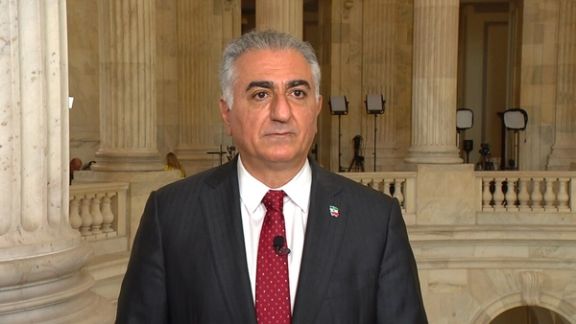Iran's Exiled Prince Rebukes West For Appeasing Islamic Republic

Iran's exiled Prince Reza Pahlavi says the way Western powers interact with the Islamic Republic has emboldened it to continue its repressive measures with greater immunity.

Iran's exiled Prince Reza Pahlavi says the way Western powers interact with the Islamic Republic has emboldened it to continue its repressive measures with greater immunity.
In a Wall Street Journal opinion piece, Pahlavi noted that the regime of Iran is the main responsible party for the attack on writer Salman Rushdie in New York last week, adding that Iran’s Ayatollah Ruhollah Khomeini invoked God to “call on all valiant Muslims wherever they may be in the world to kill [Mr. Rushdie] without delay.”
“While the Islamist regime in my country and the assailant it appears to have inspired bear responsibility for this attack, they were enabled by Western policy makers,” he wrote.
In the late 1980s and early 1990s, the United Kingdom and Germany cut relations with Iran, sending a strong message, Pahlavi said.
“This forced the Islamic Republic to keep a low profile. British and German citizens were largely safe from its machinations. The strong response from the West didn’t change Tehran’s destructive desires, but it did contain them,” he said, highlighting that now it appears “Western powers on both sides of the Atlantic have forgotten the lessons that kept their citizens secure as well as the dissidents to whom they offered a haven.”
He said although the Islamic Republic has not changed its revolutionary principle, it is now “accepted at glitzy panels at international forums and attend headline-grabbing negotiations at Europe’s chicest hotels.” That acceptance has afforded the regime unprecedented and undeserved moral equivalency with the West and has fostered confidence among Tehran’s radical followers who see the regime as a source of revolutionary inspiration to radical action, Pahlavi said.
The negotiations with Washington over a new nuclear deal in Vienna have shown “Khamenei and his criminal cabal” that they can effectively get away with murder, he said.